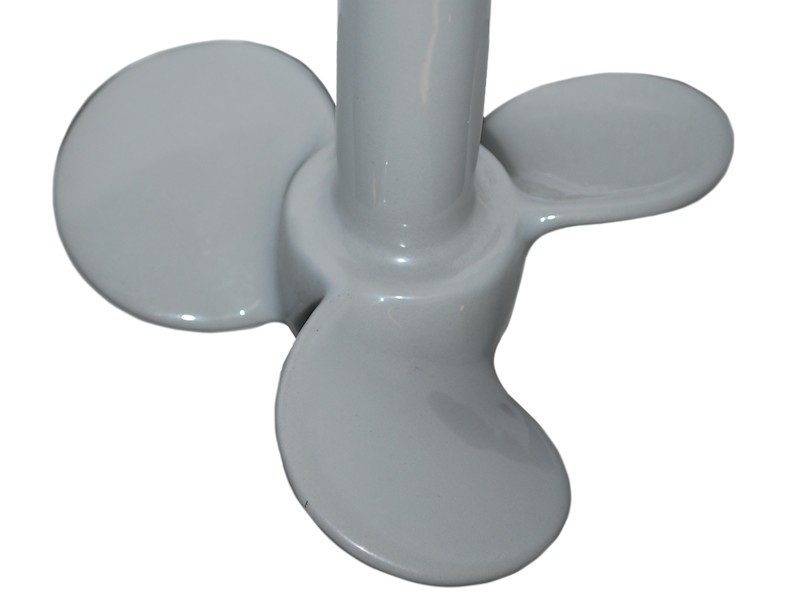There are many surface treatments and finishes common to the mixing industry. The most common and popular include:
- Surface Treatments
- Polishing
- Coatings
Surface Treatments
Surface treatments are performed on metals to achieve a variety of qualities. Treatments involve mechanical or chemical processes. These treatments improve a metal’s corrosion resistance, mechanical properties, appearance and add specific functional properties. The most common metal surface treatments in the mixing industry are mechanical polishing, passivation, and electropolishing. Passivation and electropolishing are commonly performed on pharmaceutical mixers, shafts and impellers.
Passivation
Passivation is a post fabrication process performed after welding, grinding, cutting and other machining operations that helps prevent corrosion. It is the process of removing exogenous iron or iron from the surface of stainless steels and higher alloys by means of a chemical dissolution. It is most typically done by a treatment with an acid solution that will remove the surface contamination and enhance the formation of the passive layer. Passivation processes utilized by Fusion Fluid Equipment comply with industry standard ASTM A967.
Polishing
Polishing the surfaces of a mixer's wetted parts is done to promote clean-ability and to reduce contamination from unwanted components or bacterial growth. Although most commonly done for the food and pharmaceutical industries, polishing is also utilized on applications that require thorough cleaning to reduce contamination. Polishing of mixer parts is typically done by first performing a mechanical polish, and then, in some cases, followed up by passivation or electropolishing.
Mechanical Polishing
Mechanical Polishing is a surface finish process that uses abrasive media to remove scratches and defects from a material’s surface, resulting in a smooth, uniform finish. It involves physically abrading the surface with tools and media such as hand-sanding equipment or automated machinery. Polishing the surfaces of a mixer's wetted parts is done to promote clean-ability and to reduce contamination from unwanted components or bacterial growth. Although most commonly done for the food and pharmaceutical industries, polishing is also utilized on applications that require thorough cleaning to reduce contamination.
As no two parts are alike, the combination of abrasives needed to achieve a customer’s required finish varies from part to part. All finishes on Fusion Fluid equipment are provided to customer specifications, regardless of industry. Best practice in pharma and bio-pharma is to provide finishes compliant with ASME BPE standards, as noted in section SF. In some cases Mechanical Polishing is followed up by passivation or electropolishing.
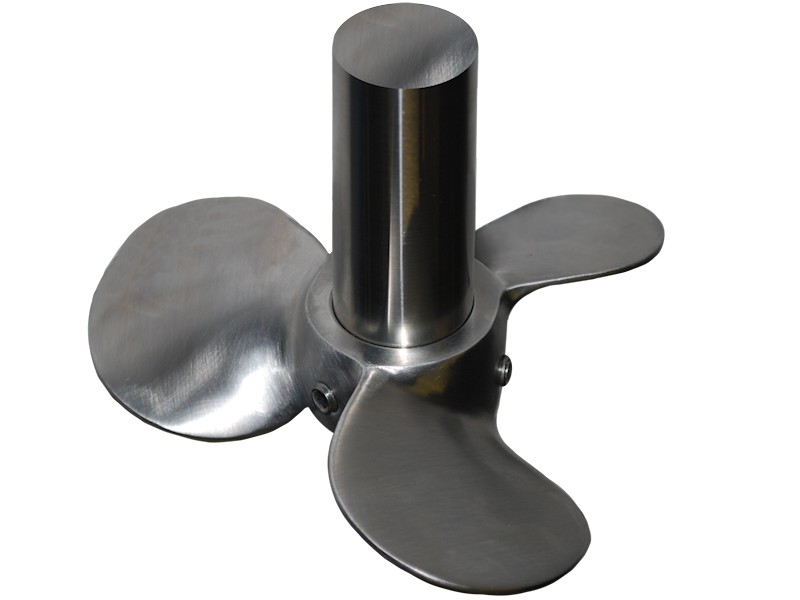
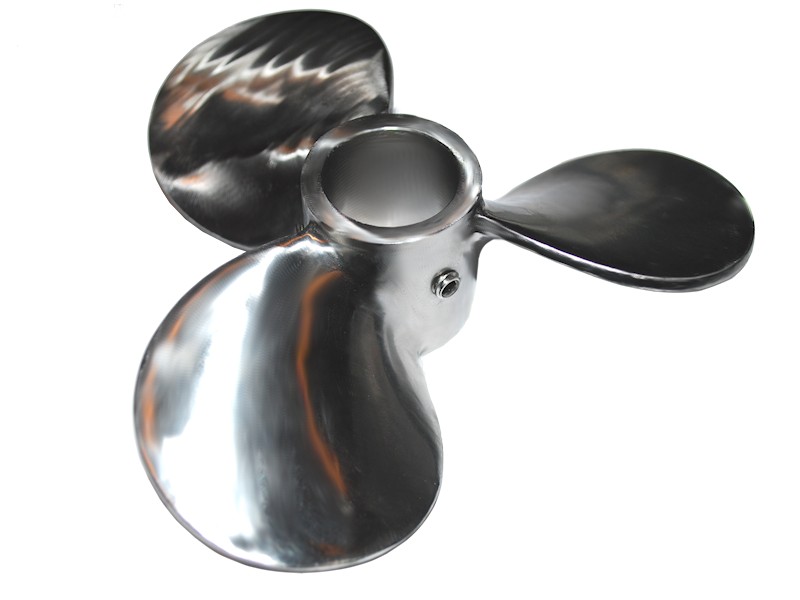
ElectroPolishing
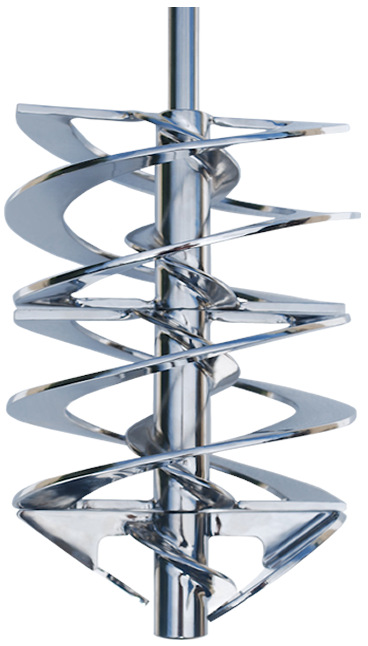
Electropolishing is an electrochemical process that selectively dissolves microscopic irregularities, creating a smooth, burr-free and contamination-free surface with improved corrosion resistance. Electropolishing is ideal for biopharma, food and beverage where extreme cleanliness is required. Fusion Fluid Equipment only uses vendors who are qualified for all electropolished components used in hygienic applications and that comply with industry standard and/or current ASTM B912.
Coatings
Depending on the application, sometimes an additional coating is applied to the surface of the mixer’s wetted parts. Coatings are typically applied for corrosion resistance, abrasion resistance, or for easy cleaning. There are many options to choose from depending on process requirements and budget.
Rubber Coating
Used in applications requiring abrasion resistance, Natural Rubber has great elastic properties and bonds well to metals; however the coating does not fare well with oxidizing chemicals, oxygen, ozone, oils, or solvents.
ChloroButyl Rubber has similar properties to natural rubber with much more tolerance to chemicals, solvents, and oils. Applied in sheets and vulcanized, ChloroButyl (or butyl) rubber offers a thick and durable coating to mixer wetted parts. This is a good coating for applications where mixer parts are regularly moved around and used vigorously.
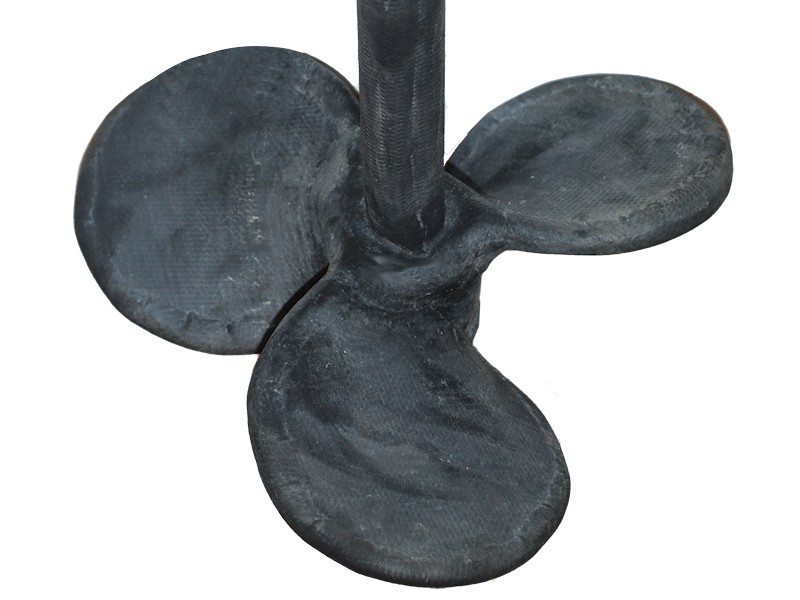
PVC Coating
A low cost coating for mixer parts to be “dipped” into. This plastic coating forms a protective shell around the wetted parts. PVC has excellent chemical compatibility with many chemicals including several acids. Often overlooked, it is a good durable coating that should be considered first before spending money on Teflon-based coatings.
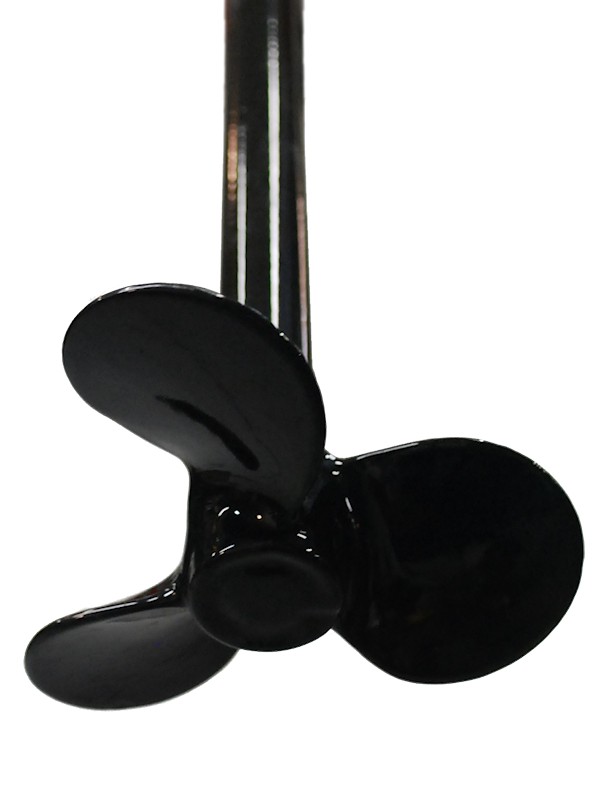
Cold Tar Epoxy Coating
One of the lowest cost coatings commercially available. This epoxy coating can be painted on mixer parts with a brush and cures within hours. It is a great, low cost option to protect wetted components in lightly corrosive environments. Commonly used on large turbine agitators in waste water treatment applications, cold tar epoxy is applied in the field to carbon steel turbine blades, the mixer shaft(s), and other hardware. It prevents excessive rust and lengthens the lifespan of the mixer. As this coating is not extremely durable, it is not recommended for highly corrosive environments, or applications that require any amount of abrasion resistance.
Kynar Coating
Kynar is a high purity fluoropolymer coating that is suitable for many pharmaceutical, nuclear, and chemical applications. Also known as PVDF, Kynar offers superior chemical resistance and durability at a lower cost than other high end coatings. In addition to the ability to be used as a coating, Kynar can also be molded and machined. This makes Kynar a great candidate for composite mixer materials of construction. Solid Kynar impellers can be used in conjunction with coated or sleeved mixer shafts.
Halar Coating
Haylar (ECTEFE) is another coating with great chemical compatibility. It forms a very smooth surface with reduced risk of pinholes, making it easy to clean and resistant to build up from process material. A great option for Hydrofluoric Acid, Sulfuric Acid, Nitric Acid, Hydrogen Peroxide, and Alkaline chemistries.
PFA Teflon Coating
PFA is the lowest cost Teflon based coatings for mixer parts. Typically applied in powder form and baked on to the shaft and impeller, PFA offers superior chemical resistance at a reasonable price. The downfall is that the coating is typically only 5 mils thick, so parts have to be handled with care and never used in abrasive mixing applications.
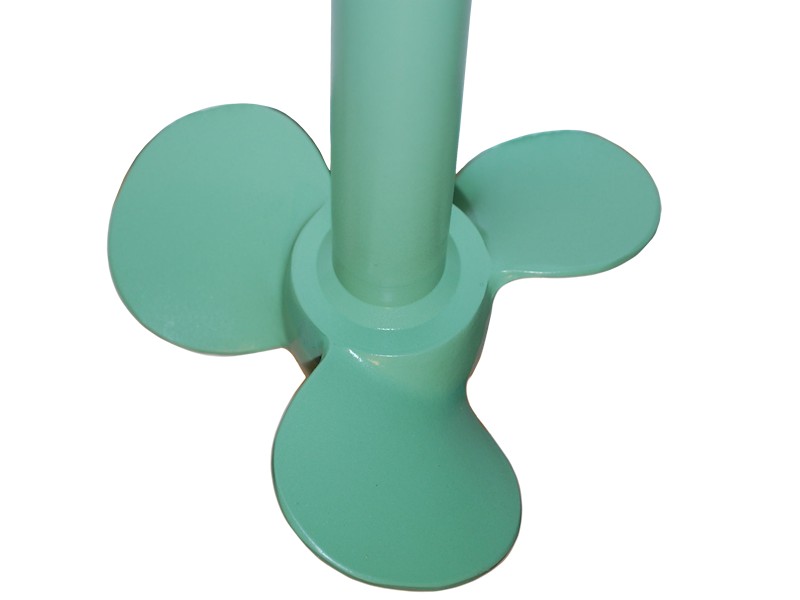
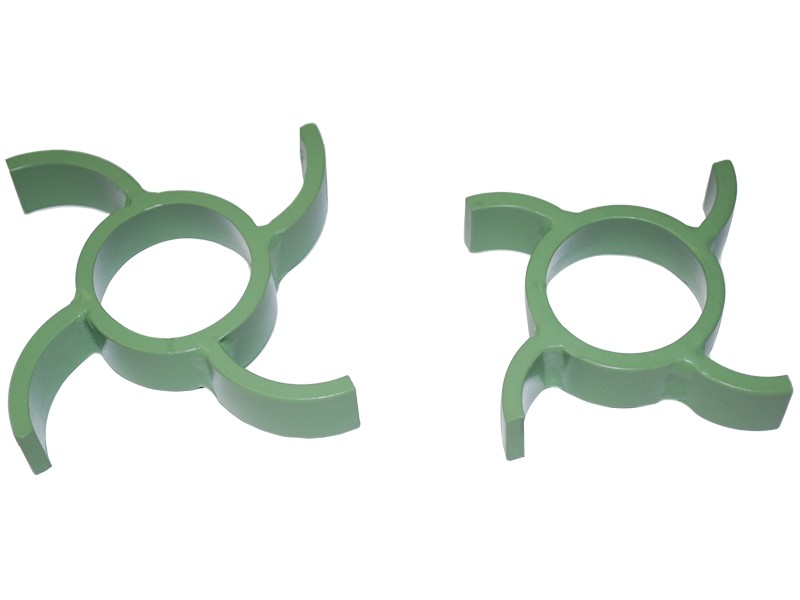
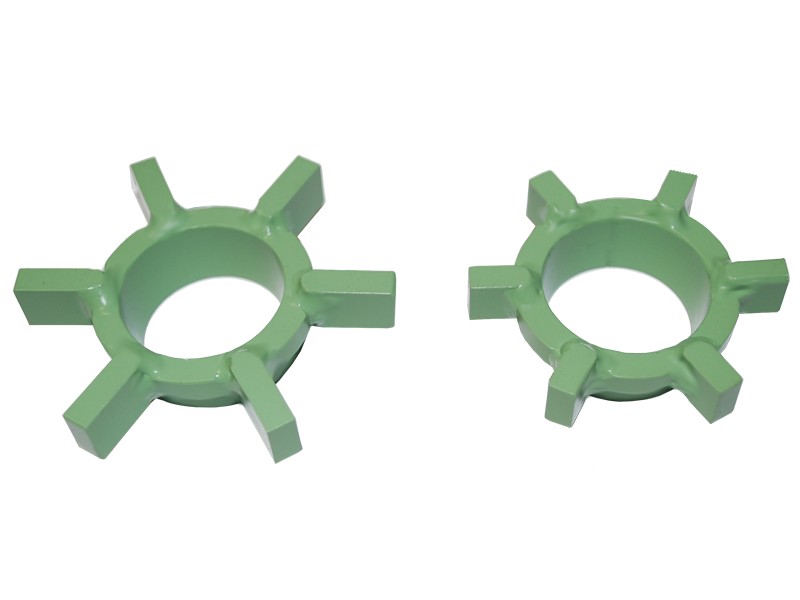
ETFE Teflon Coating
This thick, opaque bluish-white Teflon-based coating is a high purity, rugged coating with superior chemical resistance. It is a favorite for the pharmaceutical industries, as it can be provided with USPVI as well as BPE pharmaceutical conformance documentation. As cost is higher than most other coatings, it is recommended for long term service where durability and clean-ability are paramount.
